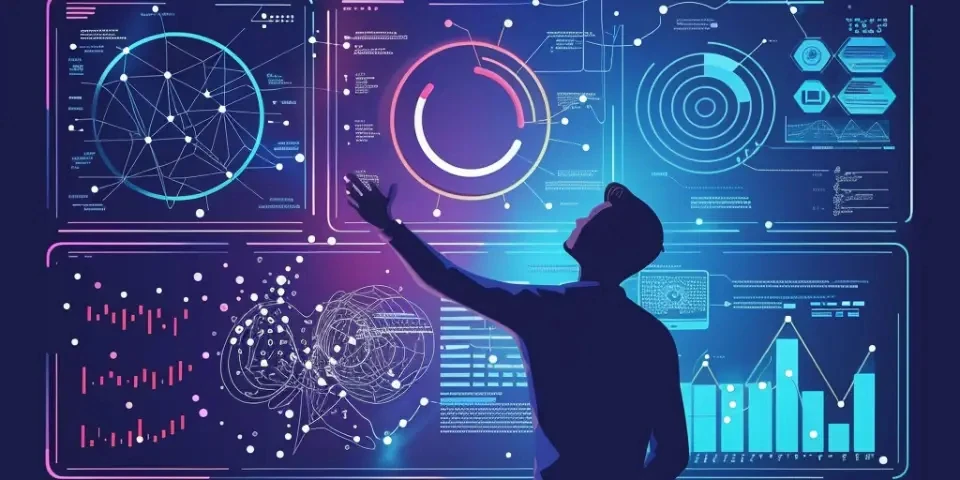How AI is revolutionizing personal assistant technology
Personal assistant technology has come a long way in recent years, thanks to the rapid advancements in artificial intelligence (AI). With the integration of AI, personal assistants have become smarter, more intuitive, and capable of performing a wide range of tasks. In this article, we will explore the various ways in which AI is revolutionizing personal assistant technology.
1. Natural Language Processing (NLP) and Voice Recognition
NLP and voice recognition technologies have greatly enhanced the capabilities of personal assistants. Now, users can interact with their personal assistants simply by conversing with them, eliminating the need for complicated commands or touch inputs. These advancements in AI have made personal assistants more accessible and user-friendly.

Moreover, AI-powered personal assistants have become more adept at understanding natural language and nuances, ensuring a seamless and conversational interaction. This level of sophistication enables personal assistants to interpret complex instructions accurately.
2. Personalization
AI has made personal assistants more personalized than ever before. By leveraging machine learning algorithms, personal assistants can gather data and analyze user preferences to offer tailored suggestions and recommendations. For example, a personal assistant can learn an individual's music taste and create personalized playlists or make restaurant recommendations based on their culinary preferences.
This personalization not only enhances the user experience but also demonstrates how AI can understand and adapt to individual needs.
3. Contextual Awareness
AI-powered personal assistants now possess contextual awareness, allowing them to understand the user's situation and respond accordingly. For instance, personal assistants can analyze the user's location, time, and calendar to provide relevant information such as weather updates or traffic conditions.
Contextual awareness also enables personal assistants to remember past queries or instructions, providing a more seamless and continuous user experience.
4. Task Automation
With the integration of AI, personal assistants can now automate a wide range of tasks, making users' lives easier and more efficient. From scheduling appointments and sending reminders to managing emails and organizing files, personal assistants can handle mundane and time-consuming tasks, allowing users to focus on more important activities.
This automation not only saves time but also reduces the cognitive load on individuals, improving productivity and overall well-being.
5. Smart Home Integration
AI-powered personal assistants have become the central control hub for smart homes. With compatibility with various smart devices, personal assistants can control lighting, thermostats, security systems, and more, all through voice commands. This integration offers users a seamless and convenient way to interact with their homes.
Furthermore, personal assistants can learn user preferences and automate routines, enhancing the comfort and energy efficiency of smart homes.
6. Advanced Internet Search
AI-powered personal assistants excel in retrieving information from the internet. Whether it's looking up the latest news, finding recipes, or researching a topic, personal assistants can quickly and accurately search vast amounts of online information.
Through AI algorithms, personal assistants can also filter information based on user preferences, ensuring more relevant and targeted search results.
7. Integration with Third-Party Services
AI has enabled personal assistants to integrate seamlessly with various third-party services and applications. From music streaming platforms and ride-sharing services to food delivery apps and online shopping, personal assistants can access and interact with these services, streamlining everyday tasks.
This integration enhances the versatility and usefulness of personal assistants, making them a one-stop solution for multiple needs.
8. Multilingual Support
Thanks to AI advancements, personal assistants can now offer multilingual support, providing assistance and understanding in different languages. This feature is particularly valuable for global users or individuals traveling to foreign countries.
By leveraging AI-powered language translation algorithms, personal assistants can communicate fluently in multiple languages, breaking down language barriers and promoting cross-cultural communication.
FAQs:
1. Can personal assistants learn new skills?
Yes, AI-powered personal assistants can learn new skills through updates and continuous learning algorithms. Developers can add new functionalities and capabilities to personal assistants, expanding their scope and versatility.
2. Are personal assistants capable of understanding accents?
Yes, personal assistants equipped with voice recognition technologies can understand a variety of accents. Through AI algorithms, they can adapt and recognize speech patterns, ensuring accurate and efficient interactions.
3. Are personal assistants safe to use?
Personal assistants prioritize user privacy and provide secure interactions. They follow strict data protection protocols and implement encryption measures to safeguard user information. However, users should always exercise caution and be mindful of their personal data when using any technology.
References:
1. Smith, S. (2022). How Artificial Intelligence Is Revolutionizing Smart Homes. Forbes. Retrieved from: https://www.forbes.com/sites/forbes-personal-shopper/2022/01/14/how-artificial-intelligence-is-revolutionizing-smart-homes/?sh=3bc67296f0f8
2. Lu, J. (2021). How AI-Powered Personal Assistants Have Changed Our Daily Lives. Analytics Insight. Retrieved from: https://www.analyticsinsight.net/how-ai-powered-personal-assistants-have-changed-daily-lives/
Explore your companion in WeMate